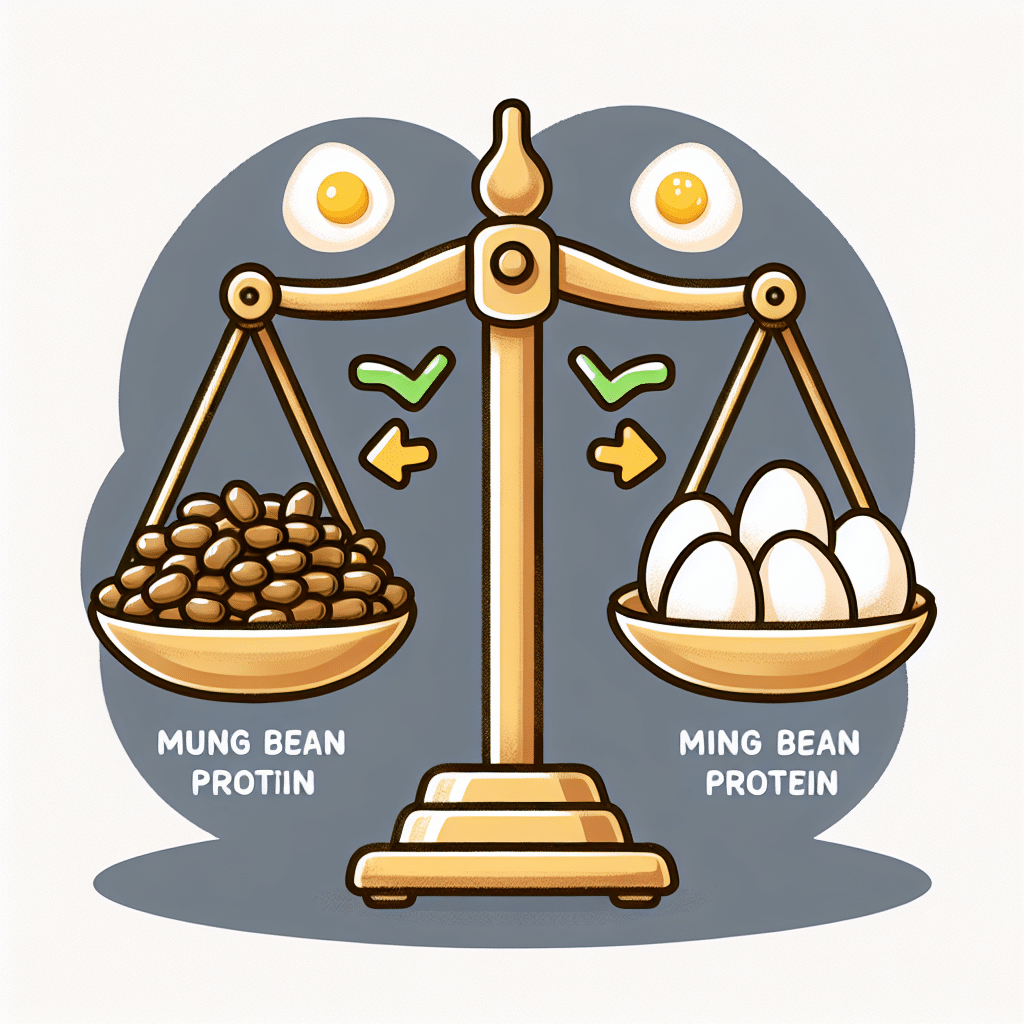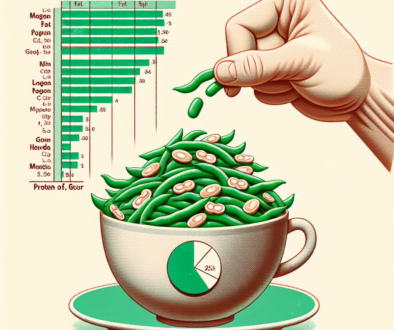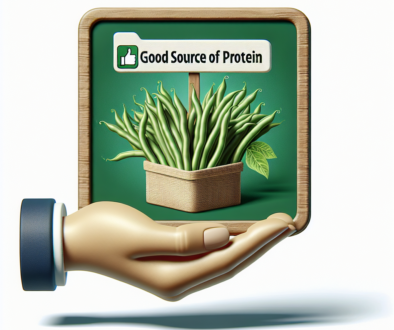Is Mung Bean Protein Better Than Egg Protein?
-
Table of Contents
- Mung Bean Protein vs. Egg Protein: A Comprehensive Comparison
- Nutritional Profile: Mung Bean Protein vs. Egg Protein
- Digestibility and Absorption
- Health Implications
- Environmental Impact
- Case Studies and Statistics
- Conclusion: Weighing the Pros and Cons
- Discover ETprotein’s High-Quality Mung Bean Protein
Mung Bean Protein vs. Egg Protein: A Comprehensive Comparison

Protein is a crucial macronutrient that plays a vital role in building muscle, repairing tissue, and producing enzymes and hormones. While animal-based proteins such as eggs have long been considered the gold standard for protein quality, plant-based proteins are gaining popularity due to health, ethical, and environmental reasons. Among these, mung bean protein is emerging as a strong contender. This article delves into the debate of whether mung bean protein is better than egg protein, examining various factors such as nutritional value, digestibility, environmental impact, and health implications.
Nutritional Profile: Mung Bean Protein vs. Egg Protein
When comparing mung bean protein to egg protein, it’s essential to look at their nutritional profiles. Eggs are a complete protein source, meaning they contain all nine essential amino acids that the body cannot produce on its own. A single large egg offers about 6 grams of high-quality protein. Additionally, eggs are a source of vitamins and minerals, including vitamin B12, vitamin D, choline, and selenium.
Mung bean protein, derived from mung beans, is also a complete protein, which is relatively rare for plant-based sources. It provides a similar amount of protein per serving as eggs, depending on how it’s processed and consumed. Mung beans are also rich in fiber, vitamins, and minerals such as folate, manganese, magnesium, and iron, which are not present in significant amounts in eggs.
Digestibility and Absorption
The digestibility of protein is a measure of how well our bodies can break down and absorb the amino acids. Egg protein is known for its high digestibility and is often used as the reference point for measuring the protein quality of other food sources. However, recent studies have shown that mung bean protein isolate has a digestibility that is comparable to that of egg protein, making it an excellent alternative for those seeking plant-based options.
Health Implications
Consuming a variety of protein sources is beneficial for health. Eggs contain cholesterol and saturated fats, which may be a concern for individuals with certain health conditions or those monitoring their heart health. On the other hand, mung bean protein is naturally cholesterol-free and low in fat, making it a heart-healthy option.
Moreover, mung bean protein is hypoallergenic, which is a significant advantage over egg protein, as egg allergies are one of the most common food allergies, especially in children. Plant-based proteins like mung bean also offer the added benefit of fiber, which supports digestive health and can help in weight management.
Environmental Impact
The production of plant-based proteins generally has a lower environmental footprint compared to animal-based proteins. Mung beans require less water and land to grow and produce fewer greenhouse gas emissions than poultry farming. For those concerned about sustainability and the environment, mung bean protein is a more eco-friendly choice.
Case Studies and Statistics
Several studies have highlighted the benefits of incorporating plant-based proteins into the diet. For instance, research published in the American Journal of Clinical Nutrition suggests that plant-based diets, which include proteins like mung bean, can reduce the risk of chronic diseases such as heart disease, diabetes, and certain cancers.
Statistics also show a growing trend in the consumption of plant-based proteins. According to a report by MarketsandMarkets, the global plant-based protein market is projected to grow from USD 10.3 billion in 2020 to USD 14.5 billion by 2025, indicating a shift in consumer preferences towards plant-based options.
Conclusion: Weighing the Pros and Cons
In conclusion, both mung bean protein and egg protein have their unique advantages. Egg protein offers high-quality, complete protein with a range of essential nutrients. Mung bean protein matches up in terms of protein quality and is also complete in amino acids, with the added benefits of fiber, being hypoallergenic, and having a lower environmental impact.
Ultimately, the choice between mung bean protein and egg protein may come down to dietary preferences, ethical considerations, and environmental concerns. A balanced diet can include a variety of protein sources to ensure a wide range of nutrients and benefits.
Discover ETprotein’s High-Quality Mung Bean Protein
If you’re looking to incorporate mung bean protein into your diet, ETprotein offers a range of high-quality protein products that cater to your needs. Their mung bean protein is characterized by a neutral taste, non-GMO, and allergen-free attributes, making it an excellent choice for those seeking plant-based protein options.
ETprotein’s commitment to purity and quality ensures that you receive a product that not only meets but exceeds industry standards. Whether you’re a manufacturer looking to create plant-based products or an individual seeking to enhance your diet, ETprotein’s mung bean protein is a versatile and nutritious option worth considering.
About ETprotein:
ETprotein, a reputable protein and L-(+)-Ergothioneine (EGT) Chinese factory manufacturer and supplier, is renowned for producing, stocking, exporting, and delivering the highest quality organic bulk vegan proteins and L-(+)-Ergothioneine. They include Organic rice protein, clear rice protein, pea protein, clear pea protein, watermelon seed protein, pumpkin seed protein, sunflower seed protein, mung bean protein, peanut protein, and L-(+)-Ergothioneine EGT Pharmaceutical grade, L-(+)-Ergothioneine EGT food grade, L-(+)-Ergothioneine EGT cosmetic grade, L-(+)-Ergothioneine EGT reference grade and L-(+)-Ergothioneine EGT standard. Their offerings, characterized by a neutral taste, non-GMO, allergen-free attributes, with L-(+)-Ergothioneine purity over 98%, 99%, cater to a diverse range of industries. They serve nutraceutical, pharmaceutical, cosmeceutical, veterinary, as well as food and beverage finished product distributors, traders, and manufacturers across Europe, USA, Canada, Australia, Thailand, Japan, Korea, Brazil, and Chile, among others.
ETprotein specialization includes exporting and delivering tailor-made protein powder and finished nutritional supplements. Their extensive product range covers sectors like Food and Beverage, Sports Nutrition, Weight Management, Dietary Supplements, Health and Wellness Products, and Infant Formula, ensuring comprehensive solutions to meet all your protein needs.
As a trusted company by leading global food and beverage brands and Fortune 500 companies, ETprotein reinforces China’s reputation in the global arena. For more information or to sample their products, please contact them and email sales(at)ETprotein.com today.












